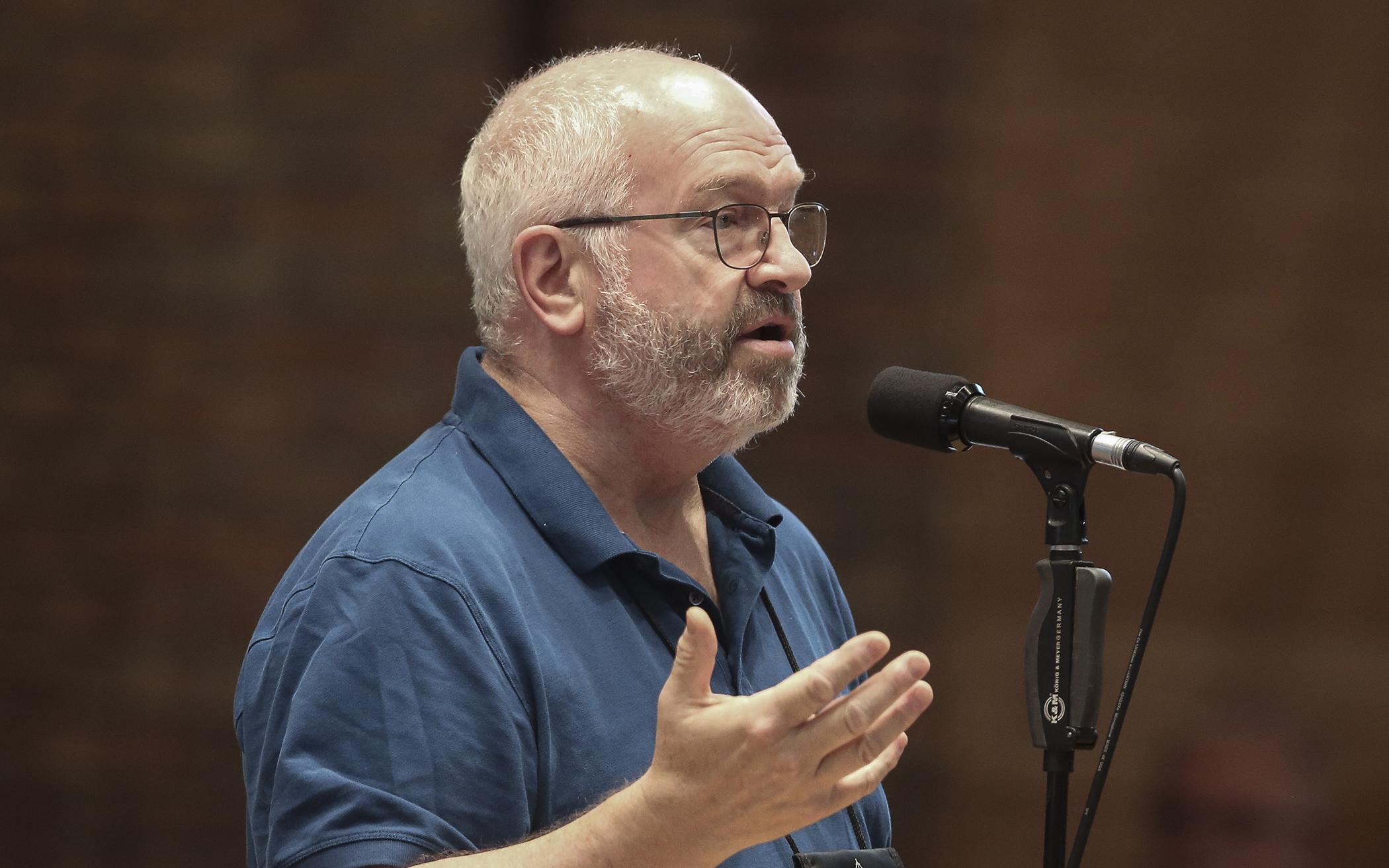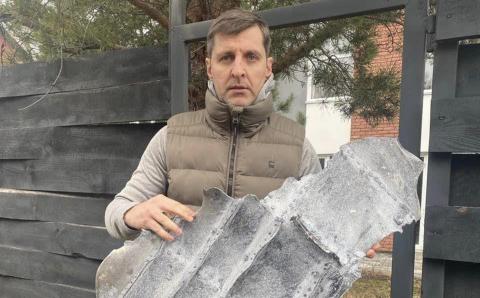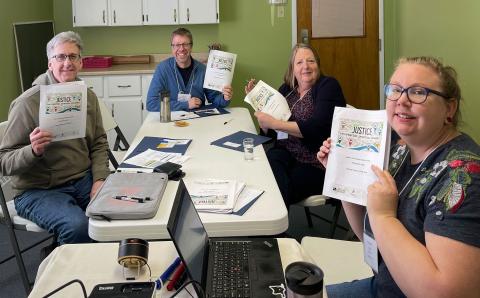Synod 2024 voted to mandate a task force to “develop Church Order procedures to discipline officebearers, including disaffiliation initiated by a major assembly,” which will report to Synod 2026. It also tasked “a small group” with assessing previous synodical pronouncements, to clarify the distinctions of “decisions, reports, positions, and advice.” That group—something less than an official task force or study committee—will report to Synod 2025.
Synod is the annual general assembly of the Christian Reformed Church in North America. It met June 14-20 in Grand Rapids, Mich.
Church Order Task Force
Despite earlier in the week affirming “the principle of original authority—Church Order Article 27—... in submission to our creeds and confessions” and rejecting a suggestion to add to the current Church Order supplement for Articles 82-84 on special discipline, Synod 2024 nonetheless appointed a task force to “develop Church Order procedures to discipline officebearers, including disaffiliation initiated by a major assembly.”
It was in response to a request from Classis Hackensack, deferred for two synods. The task force will “engage in biblical and theological study of church discipline in order to develop principles for application of biblical church discipline” and then “suggest Church Order changes to provide councils, classes, and synod with guidelines for biblical church discipline.”
David Swinney, Classis Alberta South/Saskatchewan, asked for clarification: “This task force would be studying the relationships between council, classis, and synod in regard to discipline from the broader assembly? Synod to classis and classis to council? But not at the local church level?” Swinney asked. “Correct,” said Mike Borgert, Classis Ontario Southwest, and reporter for this committee.
Borgert said, “The relationship between the assemblies in some cases are not clear” and this task force, which will report to Synod 2026, will “clarify those relationships” and “bring some unity to the process.” He said, “It’s hard to follow a process that doesn’t exist.”
Zachary King, general secretary of the CRCNA, in response to concerns about appointing yet another task force, said, “There’s a great deal of work in putting together agendas, getting people their Zoom (meeting) links, making sure their minutes are in order,” adding that when the denomination has “five, six, seven of these at a time” the Office of General Secretary can “get to the point where we don’t have the capacity.” He said the Office of the General Secretary is working on hiring a new synodical services director, “but it’ll take some time” and “there will be delay.”
Synod opted to defer a request for a broader theological study of the relationship between the assemblies of the church—one that is not just narrowly focused on discipline. Overture 75 to “evaluate polity to clarify relationship of assemblies” will now go to Synod 2025.
Clarifying Categories of Previous Decisions of Synod
Perhaps conscious of the increasing number of official task forces and study committees, synod opted to appoint just “a small group” of people to the job of clarifying “the distinctions in categories of synodical pronouncements, decisions, reports, positions, and advice and the nature and extent to which each is ‘settled and binding’ on members, officebearers, and churches.” This was in response to a request from Classis Ontario Southwest deferred from 2021 (then called Chatham).
The phrase ‘settled and binding’ comes from a report to Synod 1975, but its meaning and how it should be applied is still in dispute. The committee recommending a report from a small group on the matter noted, “The statements adopted by Synod 1975—Synodical Decisions and the Confessions—‘expressing the use and function of synodical pronouncements on doctrinal and ethical matters and their relation to the confessions’ are not uniformly interpreted by those who read them.” Therefore clarity on the distinctions in categories would be helpful. The small group will report to Synod 2025.
Matthew Hochhalter, Classis Holland, was in favor of this recommendation because a favorite quote from “a dear Bible teacher of mine from Holland Christian High School is that ‘a text without context is a pretext for trouble.’” He said, “I would like to implore synod to go through a proper process, and to not take that text (the phrase ‘settled and binding’) out of the broader report of 1975.”
Herb Schreur, Classis Northcentral Iowa, was “against absolutely any more task forces” saying “there’s no place in the Bible that says everything we do has to be done by a committee.”
The vote for the small group to work on this clarification passed 126-51.
Synod rejected a request from Classis Eastern Canada to appoint a task force to review the Covenant for Officebearers. The committee recommending to not accede to the overture wrote, “While we are sensitive to the circumstances which prompted the classis bringing the overture, we were not convinced that it presented new grounds to justify the appointment of a task force.”
Synod 2024 met June 14-20 at Calvin University in Grand Rapids, Mich. Find articles from The Banner’s daily coverage at thebanner.org/synod. Visit crcna.org/synod for the synod agenda, advisory committee reports, and recordings of plenary sessions. Synod is the annual general assembly of the Christian Reformed Church.
About the Author
Kristen Parker is a freelance writer. She has a passion for words and creativity. Kristen and her husband Chris, enjoy board games and thrift shopping. They attend Stratford CRC in Stratford, Ont.









